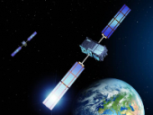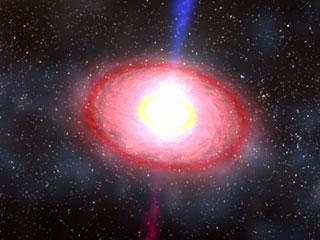
The first two satellites of the Galileo constellation are scheduled to launch on 20 October. An Astrium photo.
PARIS (BNS): Europe will take a major leap in independent global navigation system when it orbits its first two Galileo satellites later this month.
A Russian Soyuz rocket is all set to launch two state-of-the-art Galileo navigation satellites from the French Guiana spaceport on October 20.
This will be the maiden launch for the Soyuz rocket from the European spaceport at Kourou.
Carrying out the mission, the two-stage Soyuz ST-B launcher will deploy its dual-passenger payload into a 23,222 km orbit.
"The Russian launcher's payload capacity gives us the ability to launch satellites in pairs and thereby accelerate deployment of the constellation while keeping down costs," according to Claude Audouy, Galileo Operations Manager at French space agency CNES's Toulouse Space Centre.
The European global navigation system will consist of 30 Galileo satellites.
While EADS Astrium is building the first four satellites which are slated to enter operational service by 2014, German firm OHB-System will build the 26 remaining satellites in the 30-satellite constellation.
Galileo will provide better coverage and positioning accuracy than the US Global Positioning System (GPS).
"Galileo translates Europe's will to acquire its own satellite positioning system independent of the US GPS and Russian GLONASS systems," Audouy said.
Funded in its entirety by the European Commission and developed under contract by the European Space Agency (ESA), Galileo aims to offer an improved service for civil and commercial applications.
 Previous Article
Previous Article Next Article
Next Article













The Indian Air Force, in its flight trials evaluation report submitted before the Defence Ministry l..
view articleAn insight into the Medium Multi-Role Combat Aircraft competition...
view articleSky enthusiasts can now spot the International Space Station (ISS) commanded by Indian-American astr..
view article